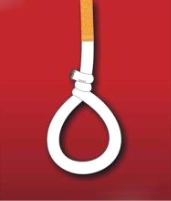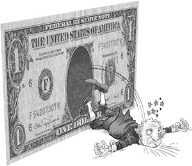��Ŀ����
����Ŀ�����ĸĴ���
�ٶ�Ӣ�������ʦҪ��ͬ��֮�佻�������ģ���������ͬ��д���������ġ����й���10�����Դ���ÿ���������������������漰һ�����ʵ����ӡ�ɾ�����ġ�
���ӣ���ȱ�ʴ���һ��©�ַ�����![]() ��������������д���üӵĴʡ�
��������������д���üӵĴʡ�
ɾ�����Ѷ���Ĵ���������������
�ģ��ڴ��Ĵ��»�һ���ߣ����ڸô�����д���ĺ�Ĵʡ�
ע�⣺1. ÿ���������ľ�����һ�ʣ�
2. ֻ������10�������ߣ��ӵ�11���𣩲��Ʒ֡�
Last Friday we have a discussion about whether it is the only way out for senior students to go to college.
The majority of us considering it very necessary to go to college. They think it can be widen their knowledge and improve their qualities. Only in this way can they find better jobs before graduation. Very few students think it no use go to university. Moreover, it��s rather hard for graduates look for satisfied jobs. Thirty percents of the students believe it doesn��t make some difference whether they go to college or not.
In my opinion, we can better themselves through college education so that we can serve society better in the future.
���𰸡�
��1��have�� had
��2��considering�� consider
��3��ɾ��can��widen֮���be
��4��before�� after
��5��go�� going
��6��look forǰ���to
��7��satisfied�� satisfactory/satisfying
��8��percents �� percent
��9��some�� any
��10��themselves�� ourselves
��������
��1��have�� had ����ʱ̬������ʱ��״��last Friday��֪���˴��������ǹ�ȥ���������飬����ʹ��һ���ȥʱhad��
��2��considering�� consider ����ν�ﶯ��������������û��ν���consideringӦ����ν���-ing��ʽ������ν�����������The majority of us���Լ������ʱ̬��һ������ʱ��������considering��Ϊconsider��ν����
��3��ɾ��can��widen֮���be ������̬��������ν�ﶯ��Ϊwiden����Ϊ���ؿ�������������һ��������̬��ϵ����be�Ƕ���ġ�
��4��before�� after �����ʡ�������ֻ���������ڱ�ҵ�Ժ����DzŻ��ҵ����õĹ�����ͨ����ѧ���ڱ�ҵ�Ժ�Ż��ҹ�������˽����after��
��5��go�� going ����̶���ʽ����ʽIt is no use doing sth.��ʾ����ij����û���õ���������it����ʽ��������������Ǻ���Ķ����ʶ��
��6��look forǰ���to ���鲻��ʽ������е�it����ʽ�������IJ���ʽ����to look for��������������ʴ˴����ϲ���ʽ����to��
��7��satisfied�� satisfactory/satisfying �������ݴʡ����ݴ�satisfied��Ϊ���е�����������ô�ͨ�������ˣ����ݴ�satisfactory/satisfying��ʾ���������������ͨ��������������е�����jobs��һ����ʾ��������ʣ�����ʹ��satisfactory/satisfying���Ρ�
��8��percents�� percent ����̶��÷�������percent��ʾ�ٷ������ô�ǰ�������ʵ�ʱ����Զ��ʹ�õ�����ʽ��
��9��some�� any �������ʡ����ݴ�someͨ�����ڿ϶����У�anyͨ���������ʾ������С�
��10��themselves�� ourselves �����������ʡ�������ʹ��ourselvesָ������we���䵱����better�ı��




